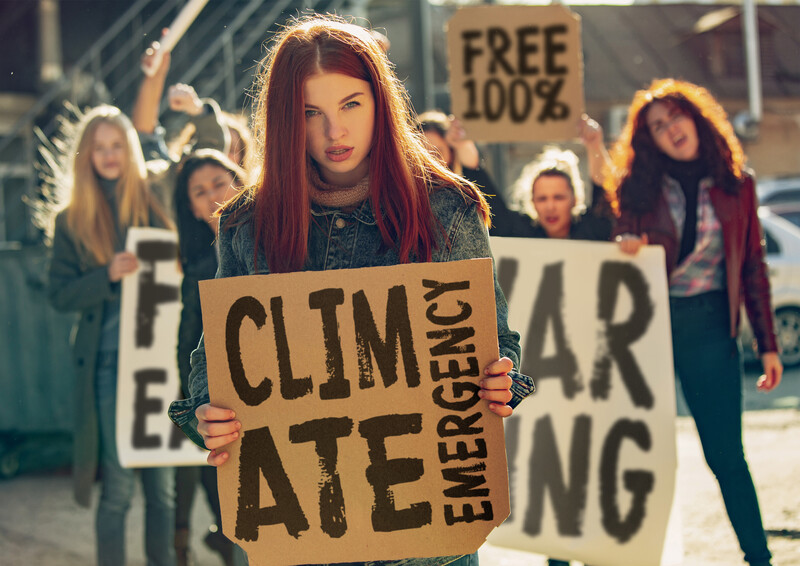by Stephanie Chambers
I recently watched a TED talk by Gen-Zer and activist Clover Hogan. It talked about how many Gen-Zs feel they are faced with the unsolvable problem of climate change – a problem which they didn’t create. Many feel depressed and traumatized by this.
She said, “Eco-anxiety is on the rise and young people seem to be some of the worst affected. Research from 2019 showed that in the UK, 70 percent of 18 to 24-year-olds were feeling eco-anxious, feeling helpless, grief, panic, insomnia, even guilt around climate change.”
Of course, some older people too are also feeling stressed by the effects of climate change and the prospect of it getting a lot worse.
Sometimes it is also called eco-distress. This condition was defined by the American Psychological Association in 2017 as “a chronic fear of environmental doom”. But you don’t have to be a doomsdayer to be feeling the effects of this condition. It is a normal response to what is clearly a global crisis.
The young environmental activist Greta Thunberg spoke about her eco-anxiety in 2018 and this brought it into focus for many. But unlike Greta, some feel it is paralyzing rather than motivating them to take action.
Just like normal anxiety, it can also lead to other conditions like eco-depression, eco-anger, denial or numbness and so on.
So what can you do if you are experiencing eco-anxiety?
It is important to focus on the small scale – your life – and what you personally can do. Control what you can control – yourself. Check that you are living your life in alignment with your values.
But if you do slip up, remember that you are part of a system that is geared towards consumption, so sometimes you can be forced into things you don’t want to do. For example, your family might insist you fly across the country for a family event even though you don’t want to do it because of the large carbon footprint this incurs. Your family may just not get the importance of reducing CO2 levels. Remember that shame is a useless emotion and just aim to do all you can to help.
Collect trash in your neighborhood, reduce your own carbon footprint by biking to work if you can. Add more insulation to your house and plug any whistling windows. Turn down the thermostat in winter and wear a sweater. All of these things can help reduce your energy consumption. If you want, you can also join other climate groups in fighting climate change. Being part of a community that is doing something positive can help you to feel more empowered.
The main thing is – don’t give up!
“Eating healthy food might be the most effective way to help save the planet,” says scientist Johan Rockström in “Breaking Boundaries: The Science Of Our Planet” by David Attenborough.
A UN Report found that a plant-based burger “uses up to 99 per cent less water, up to 95 per cent less land, & generates up to 90 per cent fewer harmful emissions than regular beef burgers, whilst consuming nearly half the energy.” So simply switching to more of a plant-based diet can really help the environment.
Some people have been advocating for a “stubborn optimism” mindset. This basically means being willing to stare down bleak circumstances or confront difficult situations, and still believe that things can (and will) get better.
How can a counselor help?
Talk to a counselor about any eco-anxiety you may be feeling. Even just verbalizing your concerns can often help. A counselor can also explain techniques for connecting with your body that you can use to overcome any panic attacks you may experience.
A therapist can also check that your eco-anxiety doesn’t exacerbate any pre-existing mental health conditions you may have. You don’t want to compound any other issues you may have.

